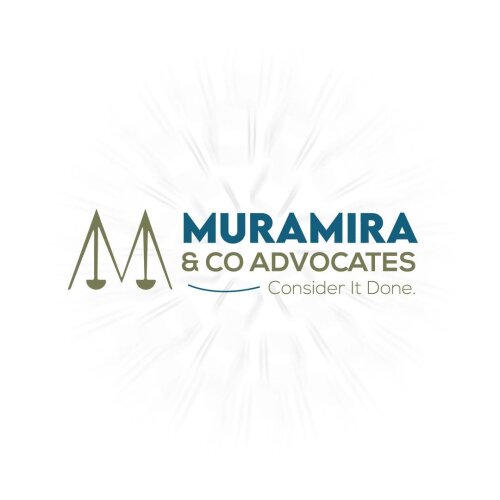Best Citizenship Lawyers in Rwanda
Share your needs with us, get contacted by law firms.
Free. Takes 2 min.
Or refine your search by selecting a city:
List of the best lawyers in Rwanda
About Citizenship Law in Rwanda
Citizenship in Rwanda is governed by the Rwandan Constitution and the Law Determining the Rwandan Nationality. In Rwanda, citizenship is acquired through birth, descent, naturalization, or marriage. The government places great importance on citizenship as a key aspect of national identity and belonging.
Why You May Need a Lawyer
You may need a lawyer for assistance with citizenship matters in Rwanda if you are looking to acquire or renounce citizenship, have questions about your citizenship status, or need help with the legal process of naturalization. A lawyer can provide guidance on the relevant laws and procedures to ensure your rights are protected.
Local Laws Overview
In Rwanda, citizenship is acquired by birth if one or both parents are Rwandan citizens, by descent if one parent is a Rwandan citizen, by naturalization for individuals who meet specific criteria, or by marriage to a Rwandan citizen. It is important to comply with the requirements set forth in the law to maintain your citizenship status in Rwanda.
Frequently Asked Questions
1. How can I acquire Rwandan citizenship?
Rwandan citizenship can be acquired through birth, descent, naturalization, or marriage to a Rwandan citizen.
2. What are the requirements for naturalization in Rwanda?
Requirements for naturalization in Rwanda include residency, proficiency in Kinyarwanda, knowledge of Rwandan culture, and other criteria outlined in the law.
3. Can I hold dual citizenship in Rwanda?
As of 2008, Rwandans can hold dual citizenship, but it is essential to understand the legal implications and requirements.
4. How can I renounce my Rwandan citizenship?
Rwandan citizenship can be renounced by following the legal procedures set forth in the Law Determining the Rwandan Nationality.
5. What rights do Rwandan citizens have?
Rwandan citizens have the right to vote, access public services, own property, and enjoy other rights granted by the Constitution and laws of Rwanda.
6. Can I pass on Rwandan citizenship to my children?
If you are a Rwandan citizen, you can pass on citizenship to your children, whether they are born in Rwanda or abroad.
7. How long does the naturalization process take in Rwanda?
The naturalization process in Rwanda can take several months to complete, depending on the applicant's circumstances and compliance with the requirements.
8. What documents do I need to submit for naturalization in Rwanda?
Applicants for naturalization in Rwanda need to submit various documents, including a birth certificate, proof of residence, and other supporting documentation required by the law.
9. Can I apply for Rwandan citizenship if I am married to a Rwandan citizen?
Yes, marriage to a Rwandan citizen is one of the ways to acquire Rwandan citizenship, but specific requirements must be met to qualify for citizenship through marriage.
10. Where can I seek legal advice on citizenship matters in Rwanda?
You can consult with a qualified lawyer specializing in citizenship law or contact the Rwanda Directorate General of Immigration and Emigration for guidance on citizenship-related issues.
Additional Resources
For more information on citizenship in Rwanda, you can visit the official website of the Rwanda Directorate General of Immigration and Emigration or seek assistance from legal aid organizations specializing in citizenship matters.
Next Steps
If you require legal assistance with citizenship matters in Rwanda, consider reaching out to a knowledgeable lawyer who can help navigate the complexities of Rwandan citizenship law and ensure your rights are protected.
Lawzana helps you find the best lawyers and law firms in Rwanda through a curated and pre-screened list of qualified legal professionals. Our platform offers rankings and detailed profiles of attorneys and law firms, allowing you to compare based on practice areas, including Citizenship, experience, and client feedback.
Each profile includes a description of the firm's areas of practice, client reviews, team members and partners, year of establishment, spoken languages, office locations, contact information, social media presence, and any published articles or resources. Most firms on our platform speak English and are experienced in both local and international legal matters.
Get a quote from top-rated law firms in Rwanda — quickly, securely, and without unnecessary hassle.
Disclaimer:
The information provided on this page is for general informational purposes only and does not constitute legal advice. While we strive to ensure the accuracy and relevance of the content, legal information may change over time, and interpretations of the law can vary. You should always consult with a qualified legal professional for advice specific to your situation.
We disclaim all liability for actions taken or not taken based on the content of this page. If you believe any information is incorrect or outdated, please contact us, and we will review and update it where appropriate.
Browse citizenship law firms by city in Rwanda
Refine your search by selecting a city.











